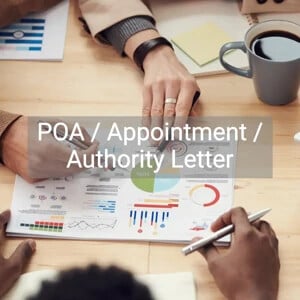Confirmation / Acknowledgement Letter


When you have received goods, services, money, information, or business, you may wish to acknowledge such receipt by mail or by e-mail to the sender as a matter of courtesy through an acknowledgment letter. Such acknowledgment not only serves as a confirmation of receipt but can also double as a thank you note for the goods, services, payment, or business.
An acknowledgment letter is a receipt in the form of a formal letter confirming receipt of the document or shipment. They are usually short and are mainly used to confirm certain documents or goods received legally on a particular date.
Acknowledgment letters are especially important for the delivery of documents or goods where time is of the essence. For example, if there is a deadline to submit a tender, or acknowledgment of receiving a resignation letter to start the notice period. Acknowledgment letters confirming receipt of goods are also helpful in avoiding future disputes in relation to shipment and delivery. An acknowledgment letter is important proof that the documents and goods were delivered on time to discharge any contractual obligations of a party.
A Confirmation is a document sent to another party to confirm or verify certain facts. In some businesses, it is routine for confirmation to be sent (such as travel agencies or hotels to confirm the booking names and dates). Such confirmations are usually made by e-mail or by telephone. In addition, it is also useful to send a confirmation to other parties after an agreement or understanding has been made.
A confirmation is similar to an acknowledgment letter but there is a slight difference in meaning. Confirmation is to actively verify the accuracy of the information stated. One would expect a response from the receiver (in particular if the information is not correct). An acknowledgment letter is the recognition or acceptance of something. It would not be necessary to give a response upon receipt of an acknowledgment letter.
Upon agreement on the terms of a contract or fulfilment of certain contractual conditions, you may wish to send a confirmation of discussion or follow-up message to the other party. It is also useful in referring to a previous meeting or telephone conversation with someone, in which case the confirmation letter confirms the facts that have been agreed or discussed and provides advice on future actions for both parties.
It is essential for such confirmation to transmit clear, concise, and accurate information to ensure that the other party is not confused by such information. A well-drafted letter can help you build good trust and cooperation with business partners.
The usual structure of a confirmation / an acknowledgment letter is as follows:
Thumbnail Image Credit: TrulyOffice.com






Not the right document?
Don’t worry, we have thousands of documents for you to choose from: